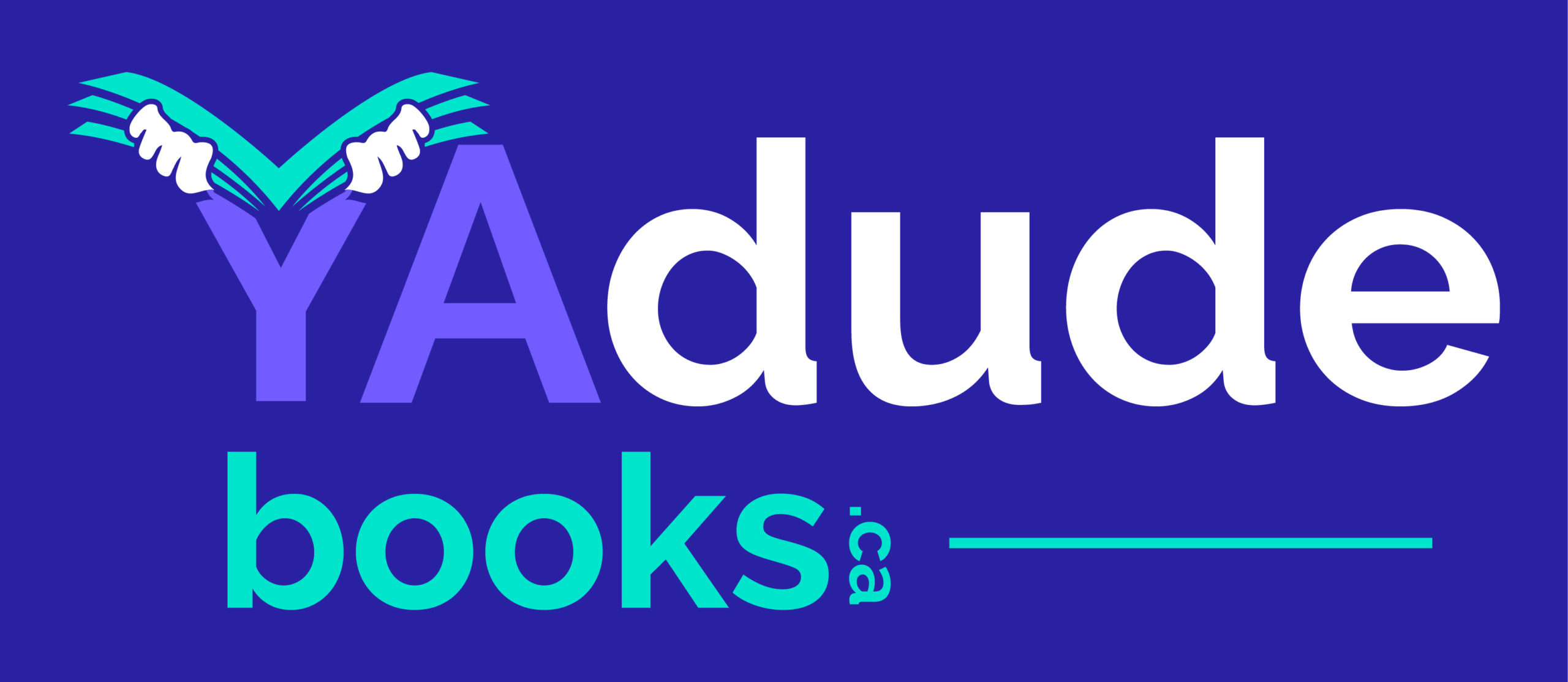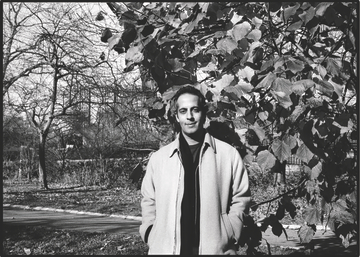Abdi Nazemian spent his childhood in a series of exciting locations (Tehran, Paris, Toronto, New York), but could usually be found in his bedroom watching old movies and reading.
He studied at Choate Rosemary Hall, a boarding school in Connecticut that inspired his most recent novel, The Chandler Legacies. He also studied at Columbia University and the University of California, Los Angeles, where he received an MBA.
His first novel, The Walk-In Closet (2014), was awarded the Lambda Literary Award for LGBT Debut. He has written three other young adult novels, all published by Balzer + Bray / HarperCollins: The Authentics (2017), Like a Love Story (2019) and The Chandler Legacies (2022).
Like a Love Story – a love letter to queer history – won a Stonewall Honor and was chosen by Time Magazine as one of the 100 best young adult books of all time. The Chandler Legacies YAdudebooks review for it is here.
He screenwriting credits include the television shows Ordinary Joe, Almost Family and The Village, and the films The Artist’s Wife and The Quiet, among others. Abdi has served as an executive producer or associate producer on numerous films, including Call Me By Your Name, Little Woods, Scotty and the Secret History of Hollywood, and The House of Tomorrow.
Abdi lives in Los Angeles with his two children and husband, and holds dual U.S. and Canadian citizenship. Although he is not the inspiration for Madonna’s children’s book The Adventures of Abdi, he will forever insist that he is. He can be found at abdinazemian.com and @Abdaddy.
Q: Tell us about your growing up years.
A: I grew up with one older brother, and many cousins who I viewed as brothers and sisters. We all left Iran around the time of the Revolution (1979). My family spent five years in Paris after leaving Tehran, and then three years in Toronto. My Toronto years were especially happy because I lived on the same block as many of my cousins, and their friendship meant everything to me, especially because moving around and not fitting in didn’t make it easy to make friends at school.
When I was ten, my family moved to the suburbs of New York. After a lifetime of living in urban centers, I felt incredibly isolated as a minority, and as a young kid quickly realizing I was queer. I isolated myself in my room often, reading books, comic books and more than anything, watching Old Hollywood movies. No one encouraged me to lose myself in stories. It was something I needed. I became obsessed with a very long list of female icons – Marilyn Monroe, Rita Hayworth, Judy Garland, Joan Crawford, Ava Gardner, the list goes on. I’ve always been fascinated by how these gay icons found me before I understood gay identity. In any case, storytelling was my escape from a world that I felt didn’t understand me, and I’m sure that’s why I’ve devoted my career to telling stories that hopefully make people feel seen and understood.
Q: What lessons on handling bullying or discrimination can you pass on to kids today?
A: All I can offer are the tools that helped me in my own life. First and foremost is creativity. I’m a huge believer in the power of creativity to help us make sense of an often senseless world. Something as simple as writing in a journal can help us put words to overwhelming feelings. Also, when you find people who do make you feel safe, hold onto them tight and turn to them for support. I didn’t find school friends or teachers who made me feel safe until my sophomore year of high school, but once I did, they really helped me find my self-worth.
Hopefully, The Chandler Legacies, which is about bullying and abuse at a boarding school, provides a more nuanced exploration of the way creativity, friendship and mentorship can empower us and set us free. And finally, every community hopefully has its own resources for handling bullying and discrimination, which I encourage students to educate themselves about and turn to.
Q: You’ve said that as a child, stories meant everything to you – that you “found yourself” through books, comic books, films and television. Can you elaborate?
A: Every young person is in a constant state of identity exploration and development. But that process can be very hard when the world you grow up in doesn’t mirror who you are, back to you. I grew up in countries with few kids who looked like me or understood my culture. And my Iranian culture had no examples of queer life. So I often felt invisible in every space I inhabited. I wish that there were stories that helped me feel seen when I was young: queer stories, Iranian stories, queer Iranian stories. But those stories weren’t accessible to me, and in the case of queer Iranian stories, they didn’t exist.
I was able to insert myself into other people’s narratives, often into the heightened and melodramatic narratives of Old Hollywood, which somehow mirrored my feelings more closely than anything being made for kids at that time. Eventually, I found stories that more closely mirrored my experience. I saw seminal queer films like Paris is Burning and Maurice. I read queer authors like James Baldwin and Armistead Maupin. I explored the rich history of Persian poetry and culture. Slowly, all these stories started to empower me, and gave me the language to communicate who I am to myself, and to others. I suppose that’s the true power of storytelling for me: It gives young people the opportunity to safely explore who they can be before they’re ready to articulate who they are.
Q: You’ve said that making a living as a writer/producer makes you feel like “an eternal child.” What qualities do children have that adults need to respect, nurture and try to hold onto themselves?
A: I have two ten-year old kids, and they live in a constant state of creativity. I really do think creativity is our natural state. All kids are creative, and I use that word broadly. It doesn’t mean all kids are meant to grow up and be artists. What I mean is that all kids are in a constant state of creating their world, their language, their friendships, their sense of self. There’s a playfulness to this state of creativity, and a sense of exhilaration at the new discoveries that each day brings, and an uninhibited freedom to the way they explore these new discoveries.
As we grow older, we often lose this sense of playfulness and freedom. We fall into habits, and allow ourselves to settle into routines. I try as hard as I can not to let this happen to me. My favorite guide to creativity is a book called The Artist’s Way, and among other tools, the author recommends taking yourself on an “artist date” every week, which is a solo date where you take yourself somewhere that connects you to that childlike creative spirit that still lives inside you. I love that concept, and do it as often as I can. I don’t know how anyone actively engaged in creative work can do it without connecting to the eternal child inside.
Q: You’re known for being committed to telling diverse stories that reflect the breadth of human experience. Please tell us more about why this is so important to you.
A: I already discussed feeling invisible when I was young. Knowing what that feels like, and how stories can help us see ourselves, I want to play my part in making sure no young person feels invisible. Also, I feel I have unique stories to tell. My first novel was the first with a gay Iranian man as a lead character. Growing up and into my twenties, I never saw a single movie, book or TV show with an Iranian gay man in it. When I started putting personal stories on paper, it felt like I was fighting my own invisibility. Hopefully, in doing so, I can help others feel more visible and inspire them to tell their own unique stories.
Q: Someone with your talents could write for any age group, and yet you seem drawn to the young adult genre.
A: Well, I do write for many age groups. I’ve written an adult novel, and I still write film and television for adults. But I’ve found a beautiful home in young adult books, and I’m so glad I did. I first started writing books because it was so hard to find a path to production in the film and TV world when I was writing personal stories. Any script I wrote about Iranian people or queer people seemed to become a writing sample used to get me work on a less personal project.
Around the time my kids were born, I realized how important it was to me that I leave behind work that reflects my values and life experiences for them. After writing my first adult novel, I tackled a young adult book because I was inspired by the diversity I was seeing in the genre, and I wanted to write for an audience that was craving the same representation I was craving. And I’ve never looked back because I love it. I love writing stories about young people, because it’s such a rich time in our lives, full of questions. And I love the young adult readership, because it’s full of robust and illuminating discourse.

